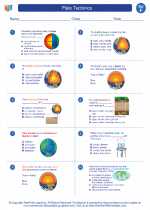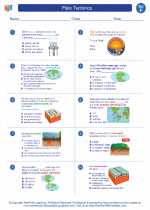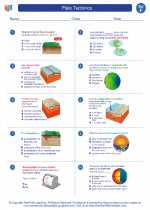Ice
Ice is the solid form of water. It is created when water freezes at or below 0 degrees Celsius (32 degrees Fahrenheit). When water molecules lose energy, they slow down and form a crystalline structure, resulting in the solid state of water known as ice.
Properties of Ice
Ice has several unique properties, including:
- Expansion: Ice expands when it freezes, which is why ice cubes float in liquid water.
- Transparency: Ice is transparent, allowing light to pass through it.
- Brittleness: Ice is relatively brittle and can easily break or fracture under pressure.
- Melting Point: Ice melts into liquid water at 0 degrees Celsius (32 degrees Fahrenheit).
Uses of Ice
Ice serves several important purposes, including:
- Preservation: Ice is used to preserve food and keep it fresh.
- Cooling: Ice is used to cool beverages and maintain cold temperatures in refrigeration systems.
- Therapeutic Purposes: Ice packs are used to reduce swelling and alleviate pain in injuries.
Study Guide
To study the topic of ice, consider the following key points:
- Describe the process of ice formation from liquid water.
- Explain the unique properties of ice and how they differ from those of liquid water.
- Discuss the various uses of ice in everyday life and industry.
- Compare and contrast the physical properties of ice with other states of water, such as liquid and vapor.
- Investigate the effects of temperature and pressure on the formation and behavior of ice.
Understanding the science of ice can provide insights into fundamental concepts of matter and phase changes, as well as practical applications in diverse fields.
.◂Science Worksheets and Study Guides Sixth Grade. Plate Tectonics
Worksheet/Answer key Plate Tectonics
Plate Tectonics  Worksheet/Answer key
Worksheet/Answer key Plate Tectonics
Plate Tectonics  Worksheet/Answer key
Worksheet/Answer key Plate Tectonics
Plate Tectonics  Vocabulary/Answer key
Vocabulary/Answer key Plate Tectonics
Plate Tectonics  Vocabulary/Answer key
Vocabulary/Answer key Plate Tectonics
Plate Tectonics  Vocabulary/Answer key
Vocabulary/Answer key Plate Tectonics
Plate Tectonics  Vocabulary/Answer key
Vocabulary/Answer key Plate Tectonics
Plate Tectonics 

 Worksheet/Answer key
Worksheet/Answer key
 Worksheet/Answer key
Worksheet/Answer key
 Vocabulary/Answer key
Vocabulary/Answer key
 Vocabulary/Answer key
Vocabulary/Answer key
 Vocabulary/Answer key
Vocabulary/Answer key
 Vocabulary/Answer key
Vocabulary/Answer key

The resources above cover the following skills:
EARTH AND SPACE SCIENCE
Earth’s Systems
Use evidence to explain how different geologic processes shape Earth’s history over widely varying scales of space and time (e.g., chemical and physical erosion; tectonic plate processes; volcanic eruptions; meteor impacts; regional geographical features, including Alabama fault lines, Rickwood Caverns, and Wetumpka Impact Crater).
Provide evidence from data of the distribution of fossils and rocks, continental shapes, and seafloor structures to explain past plate motions.
Use models to explain how the flow of Earth’s internal energy drives a cycling of matter between Earth’s surface and deep interior causing plate movements (e.g., mid-ocean ridges, ocean trenches, volcanoes, earthquakes, mountains, rift valleys, volcanic islands).